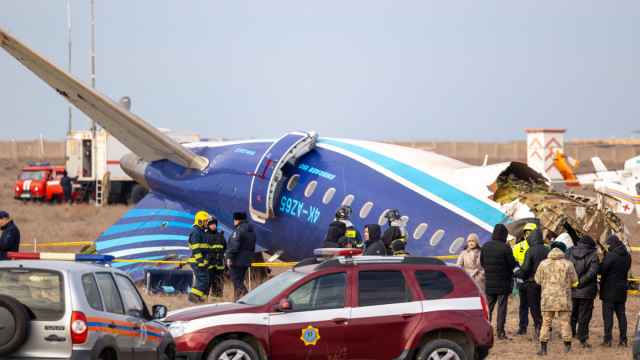LIMA, Peru — A Peruvian journalist whom the United States deported to Russia last month in a spy swap is free to return home, but her Russian husband could be charged with lying on his citizenship application, Peru's foreign minister said.
"They didn't spy in favor of or against Peru," the official, Jose Antonio Garcia, said in a radio interview Friday.
He said Peruvian-born Vicky Pelaez, a longtime columnist for the newspaper El Diario La Prensa in New York, is a Peruvian citizen and is free to return home, where she is not accused of breaking any laws.
But her husband Mikhail Vasenkov — who plans to accompany her — could face fraud charges, Garcia said.
Pelaez, 55, and Vasenkov, 65, met in Peru in the early 1980s when she was a television reporter and he a news photographer. He identified himself as Juan Lazaro, a Uruguayan. It was that name he gave when he fraudulently obtained Peruvian citizenship in 1979, Garcia said.
The couple's New York lawyer, Genesis Perduto, said Friday that the couple planned to return to Peru in a matter of weeks. She said it remained to be resolved whether Vasenkov could indeed be prosecuted in Peru.
The law against the falsification and use of fraudulent public documents that Vasenkov purportedly broke has a 10-year statute of limitations, so he cannot be prosecuted, said Mario Amoretti, a Peruvian criminal law expert.
It is unclear whether Pelaez was aware of her husband's true identity before the couple's arrest in late June.
Perduto said the couple's 17-year-old son, Juan Lazaro Jr., and his stepbrother Waldo Mariscal, 38, would stay in the New York area.
"They're getting an apartment," she said. "They have a few more months until they have to leave the house."
U.S. prosecutors say the family's two-story brick and stucco home in suburban Yonkers was paid for by Vasenkov's Russian government handlers.
A Message from The Moscow Times:
Dear readers,
We are facing unprecedented challenges. Russia's Prosecutor General's Office has designated The Moscow Times as an "undesirable" organization, criminalizing our work and putting our staff at risk of prosecution. This follows our earlier unjust labeling as a "foreign agent."
These actions are direct attempts to silence independent journalism in Russia. The authorities claim our work "discredits the decisions of the Russian leadership." We see things differently: we strive to provide accurate, unbiased reporting on Russia.
We, the journalists of The Moscow Times, refuse to be silenced. But to continue our work, we need your help.
Your support, no matter how small, makes a world of difference. If you can, please support us monthly starting from just $2. It's quick to set up, and every contribution makes a significant impact.
By supporting The Moscow Times, you're defending open, independent journalism in the face of repression. Thank you for standing with us.
Remind me later.





